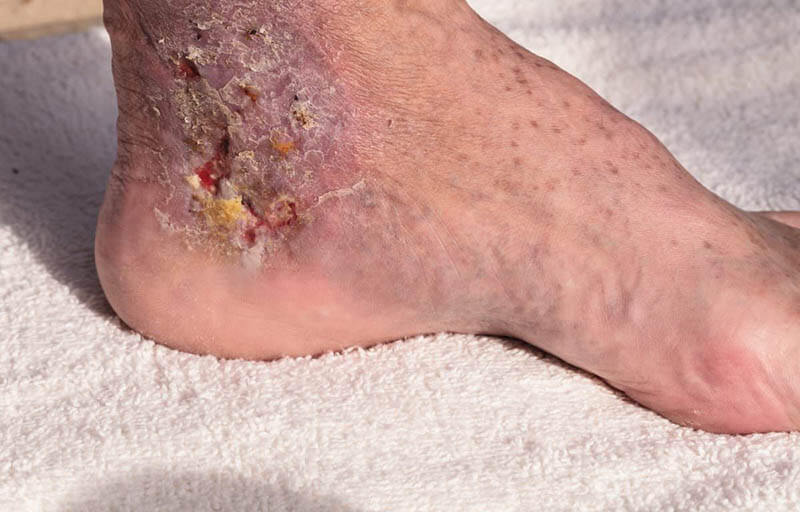
Cellulitis
Cellulitis occurs when bacteria, most commonly streptococcus and staphylococcus, enter through a crack or break in your skin. The incidence of a more serious staphylococcus infection called methicillin-resistant Staphylococcus aureus (MRSA) is increasing.
Although cellulitis can occur anywhere on your body, the most common location is the lower leg. Bacteria is most likely to enter disrupted areas of skin, such as where you’ve had recent surgery, cuts, puncture wounds, an ulcer, athlete’s foot or dermatitis.
Certain types of insect or spider bites also can transmit the bacteria that start the infections of the skin. Bacteria can also enter through areas of dry, flaky skin or swollen skin.
Several factors can place you at greater risk :
-
- Injury. Any cut, fracture, burn or scrape gives bacteria an entry point.
- Weakened immune system. Conditions that weaken your immune system — such as diabetes, leukemia and HIV/AIDS — leave you more susceptible to infections. Certain medications, such as corticosteroids, also can weaken your immune system.
- Skin conditions. Skin disorders — such as eczema, athlete’s foot, chickenpox and shingles — can cause breaks in the skin and give bacteria an entry point.
- Chronic swelling of your arms or legs (lymphedema). Swollen tissue may crack, leaving your skin vulnerable to bacterial infection.
- History of cellulitis. People who previously had cellulitis, especially of the lower leg, may be more prone to develop it again.
- Intravenous drug use. People who inject illegal drugs have a higher risk of developing cellulitis.
- Obesity. Being overweight or obese increases your risk of developing cellulitis and having recurring episodes.The bacteria that cause cellulitis can spread rapidly, entering lymph nodes and your bloodstream. Recurrent episodes of cellulitis may damage the lymphatic drainage system and cause chronic swelling of the affected limb.In rare cases, the infection can spread to the deep layer of tissue called the fascial lining. Flesh-eating strep (necrotizing fasciitis) is an example of a deep-layer infection. It represents an extreme emergency. Cited from mayoclinic.org.
How to Treat Cellulitis
Foot pain, no matter how mild, is not natural.If you are experiencing pain or noticing a change in your feet you should seek medical care right away. Early care can help prevent affected area, and the condition from worsening. Contact Podiatry Group of Georgia today to schedule your appointment or book you appointment online.
Call Our Marietta, Georgia Office Today at 404-806-3731 or Book your appointment online now!

![podiatryGroup-Logo[1] Logo](https://www.podiatrygroupofgeorgia.com/wp-content/uploads/2020/07/podiatryGroup-Logo1.png)